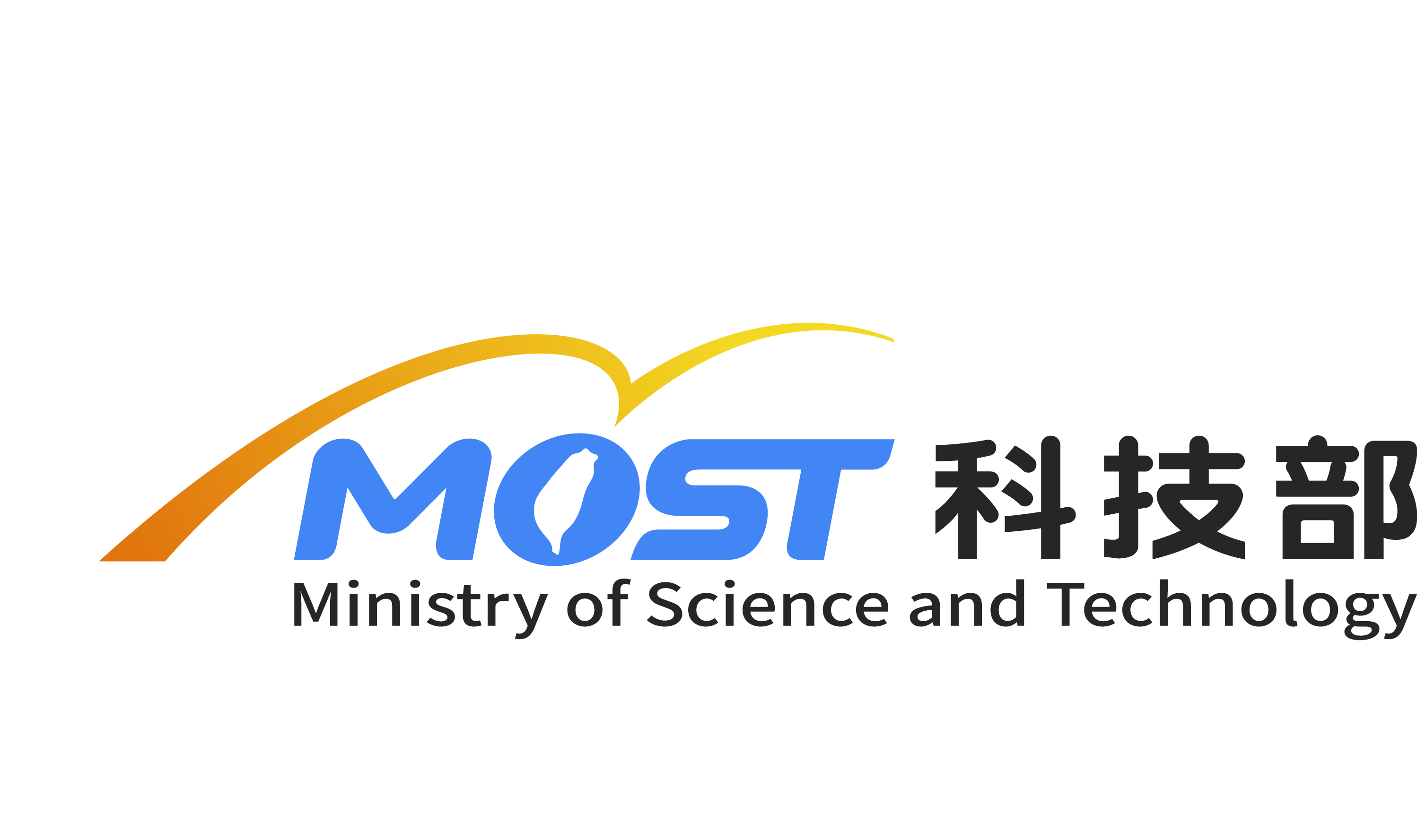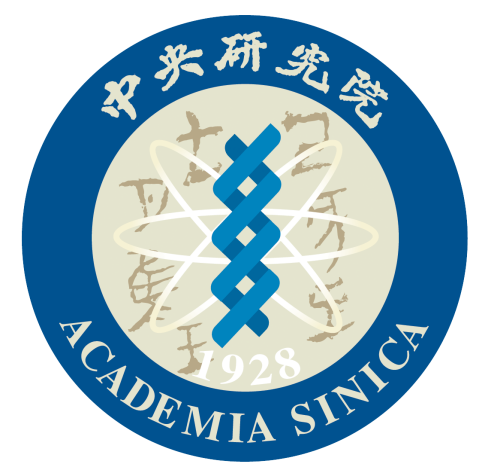The 28th Asia-Pacific Software Engineering Conference
6th - 9th December 2021 - Virtual
(originally Taipei, Taiwan)
Welcome to the website of the 28th Asia-Pacific Software Engineering Conference (APSEC 2021)
Due to the COVID-19 pandemic, the APSEC 2021 will be held virtually
The Asia-Pacific Software Engineering Conference (APSEC) has long been established as a premier regional conference that brings together researchers and practitioners from academia, industry and government to share the state of the art and the practice of software engineering, and to explore emerging challenges and solutions in software engineering innovation. APSEC 2021 will continue in the tradition of previous editions of this regional conference. As past APSEC series, the main research track features the most recent and significant innovations in the field of software engineering and all its sub-disciplines. APSEC 2021 also invites submissions of high-quality research papers that describe original and unpublished results on all topics of both theoretical and empirical software engineering research.
APSEC 2021 will offer an extensive program of interest to academia, government, and industry. It will include several distinguished keynote speakers and conference days of paper presentations and demos. A series of exciting tutorials to develop skills in various aspects of software engineering practices is of particular interest to the industry. Co-located workshops offer forums for participants to present novel techniques and methods in specific sub-disciplines of software engineering.
Download the PDF version of the CFP Here.
We look forward to your contribution and participation.
Important notice: Due to the concerns over the participants' health and safety and the travel restrictions during the COVID-19 pandemic, the APSEC 2021 organizing committee decided to hold the conference totally online. Microsoft Teams is the primary online meeting platform of APSEC 2021. In each online session for the technical research and ERA tracks, conference staff will play presentation video clips pre-recorded by the authors. The session chair will initiate an online discussion after the video. For the poster track, the "Gather" platform will be used to facilitate communications using virtual booths. We would be very grateful if you could support APSEC. We look forward to seeing you online in APSEC 2021!
News
- 2021/12/10: Thank you for your participation in APSEC 2021! If you need the Certificate of Oral Presentation, please contact apsec2021online@gmail.com and indicate your name, paper ID, and paper title.
- 2021/12/08: APSEC 2021 Best Paper Awards
Based on the review scores, reviewers’ nominations, review comments, and the quality of papers, three papers were selected as the APSEC 2021 best ERA paper, best SEIP paper, and best paper:-
APSEC 2021 Best ERA Paper:
Hiroto Watanabe, Shinsuke Matsumoto, Yoshiki Higo, Shinji Kusumoto, Toshiyuki Kurabayashi, Hiroyuki Kirinuki and Haruto Tanno. Applying Multi-Objective Genetic Algorithm for Efficient Selection on Program Generation -
APSEC 2021 Best SEIP Paper:
Yuchu Liu, David Issa Mattos, Jan Bosch, Helena Holmström Olsson and Jonn Lantz. Bayesian propensity score matching in automotive embedded software engineering -
APSEC 2021 Best Paper:
Bo Gao, Siyuan Shen, Ling Shi, Jiaying Li, Jun Sun and Lei Bu. Verification Assisted Gas Reduction for Smart Contracts
-
APSEC 2021 Best ERA Paper:
- 2021/12/04: We have two domain names for the virtual meeting portal: https://apsec2021online.seat.org.tw/ and https://apsec2021.org/home. If you cannot access the first domain name, please try the second one.
- 2021/12/03: Testing time for Microsoft Teams
Welcome to test the meeting functionality of Teams tommorrow:
- Test Time: 4 December 2021, 9:00-12:00 and 14:00-17:00 (GMT+8)
- Meeting Room: link
You can test the functionality of chat, text message, and screen broadcasting. Our staff will help you. - 2021/12/03: The conference program is updated: https://apsec2021.seat.org.tw/APSEC2021-program-1203.pdf
- 2021/11/30: The virtual meeting portal for APSEC 2021 is available: https://apsec2021online.seat.org.tw/ (only registered participants and invited guests can log in to the portal).
- 2021/11/30: A simple user manual for Microsoft Teams is available: https://apsec2021.seat.org.tw/APSEC2021-teams-manual.pdf
- 2021/11/23: The conference program is available: https://apsec2021.seat.org.tw/APSEC2021-program-1123.pdf
- 2021/10/21: All notification letters of the Poster track were sent out on 21 October 2021.
- 2021/10/17: Due to IEEE CPS (Conference Publishing Services) is currently undergoing maintenance, the Camera-Ready Due of the ERA track is extended to 20 October 2021 (AoE).
- 2021/10/3: Due to multiple requests, the deadline for the paper submissions to the Poster track has been extended to 11 October 2021 (AoE).
- 2021/10/3: All notification letters of the ERA track were sent out on 3 October 2021.
- 2021/9/26: The registration system of APSEC 2021 is open now.
- 2021/9/19: All notification letters of techincal research and SEIP tracks were sent out on 19 September 2021.
- 2021/8/18: Due to multiple requests, the deadline for the paper submissions to the ERA track has been extended to 30 August 2021 (AoE).
- 2021/7/14: Final call for APSEC 2021 Technical Research / SEIP tracks: The deadline for the abstract / full paper submissions to the Technical Research / SEIP tracks has been extended to 26 July 2021.
Important Dates
Technical Research Papers / SEIP (Software Engineering in Practice) Papers
Abstract Due: 1 July 2021 26 July 2021 (AoE)
Submission Due: 8 July 2021 26 July 2021 (AoE)
Notification: 2 September 2021 19 September 2021
Camera-Ready Due: 23 September 2021 11 October 2021
ERA (Early Research Achievements) Papers
Submissions Due: 19 August 2021 30 August 2021 (AoE)
Notification: 23 September 2021 3 October 2021
Camera-Ready Due: 7 October 2021 20 October 2021
Poster Papers
Submissions Due: 7 October 2021 11 October 2021 (AoE)
Notification: 14 October 2021 21 October 202
Camera-Ready Due: 21 October 2021 28 October 2021
Call for Workshops
Proposal Submissions Due: 15 July 2021 (AoE)
Proposal Notification: 29 July 2021
Scope and Topics
Topics related to all aspects of software engineering that include, but are not limited to:
- AI for Software Engineering
- Agile methodologies
- Cloud and Service-oriented Computing
- Component-based Software Engineering
- Configuration Management and Deployment
- Cooperative, Distributed, and Global Software Engineering
- Cyber-physical Systems and Internet of Things
- Debugging, Defect Prediction and Fault Localization
- DevOps and Container
- Embedded Real-time Systems
- Empirical Software Engineering
- Formal Methods
- Human Factors and Social Aspects of Software Engineering
- Middleware, Frameworks, and APIs
- Mobile and Ubiquitous Systems
- Model-driven and Domain-specific Engineering
- Open Source Development
- Parallel, Distributed, and Concurrent Systems
- Programming Languages and Systems
- Refactoring
- Requirements Engineering
- Reverse Engineering
- Search-based Software Engineering
- Security, Reliability, and Privacy
- Software Architecture, Modelling and Design
- Software Comprehension, Visualization, and Traceability
- Software Engineering Education
- Software Engineering Process and Standards
- Software Engineering for Smart Manufacturing
- Software Engineering Tools and Environments
- Software for Green and Sustainable Technologies
- Software Maintenance and Evolution
- Software Product-line Engineering
- Software Project Management
- Software Reuse
- Software Repository Mining and Data Analytics
- Testing, Verification, and Validation
- Web-based Software Engineering
Guidelines for Submission and Publication
General Guidelines
- Submissions must be submitted electronically in PDF before the due date via EasyChair (https://easychair.org/conferences/?conf=apsec2021).
- All submissions must be in English, and must come in A4 paper size PDF format and conform, at time of submission, to the IEEE Conference Proceedings Formatting Guidelines (title in 24pt font and full text in 10pt font, LaTeX users must use \documentclass[10pt,conference]{IEEEtran} without including the compsoc or compsocconf option). Also, papers must comply with the IEEE Policy on Authorship.
- Submitted papers must have been neither previously accepted for publication nor concurrently submitted for review in another journal, book, conference, or workshop.
- APSEC 2021 applies the single-blind review model.
- The Chairs reserve the right to reject submissions (without reviews) that are not in compliance or out of scope for the conference.
- All accepted papers will be submitted to the IEEE-CS Digital Library as the APSEC 2021 conference proceedings.
- For your paper to be published in the APSEC 2021 conference proceedings, at least one of the authors of the paper must register for the conference and confirm that she/he will present the paper at the conference (online).
Technical Research Papers
- The APSEC 2021 technical research track invites high quality submissions of papers describing original research studies and results in the discipline of software engineering.
- Technical research papers are limited to 10 pages and one additional references page. Submissions will be evaluated by at least three program committee members. The evaluation will focus on the novelty, originality, importance to the field, proper use of research methods, and presentation of the submissions.
SEIP (Software Engineering in Practice) Papers
- APSEC 2021 will feature a Software Engineering in Practice (SEIP) track, in a similar fashion the ICSE SEIP (International Conference on Software Engineering, Software Engineering in Practice) track. This track will gather quality empirical studies as well as experience reports from real-world software practice. This encourages both industrial and research participants to communicate and share challenges of software engineering in practice. The papers in the SEIP track follow the general topics specified in the technical research track.
- SEIP papers are limited to 10 pages and one additional references page. Submissions will be reviewed by at least two members of the Program Committee, and they will be evaluated on the basis of industry relevance, originality, soundness, empirical and-or practical validation, quality and consistency of presentation.
ERA (Early Research Achievements) Papers
- The ERA (Early Research Achievements) track invites submissions of papers that present current work-in-progress and be based on either research, practice or experience. Papers in the ERA track do not always need to report such complete results as full conference papers and so can be a good way to fast track new technical work.
- The ERA track follows the general topics specified in the technical research track.
- ERA papers limited to 5 pages and one additional references page. All paper submissions are rigorously reviewed by at least two reviewers and evaluated based on originality, technical quality, and relevance to software engineering concepts and technologies.
Poster Papers
- Poster papers should present work in progress and be based on either research, practice or experience. Poster papers are not required to report complete results as full conference papers, so they are a good way to fast track new technical work. Posters will be presented during a special session at APSEC 2021.
- The poster session at APSEC 2021 aims to bring like-minded people together in an interactive setting. Effectively designed posters convey the essence of an idea, an experience or a piece of research in an appealing manner. The work presented in a poster does not have to be fully developed and can be a good way to get early feedback on new ideas. A good poster will encourage conference participants to interact with others who are also attracted to the poster topic, and could be a catalyst for developing and extending topic networks.
- Poster proposals must not exceed 2 pages. Each submission will be rigorously reviewed by the poster review panel, and evaluated based on the relevance to software engineering concepts and technologies.
Accepted Workshops
9th International Workshop on Quantitative Approaches to Software Quality (QuASoQ 2021)
Submission deadline: 22rd October 2021
3rd International Workshop on Experience with SQuaRE series and its Future Direction (IWESQ 2021)
Submission deadline: 5th October 2021
3rd International Workshop on Machine Learning Systems Engineering (iMLSE 2021)
Submission deadline: 15th October 2021
2nd Workshop on NLP Advancements for Software Engineering
(NLPaSE)
Submission deadline: 15th September 2021 30th September 2021 (AoE)
4th Software Engineering Education Workshop: Emerging Needs of Software Engineering Education (SEED 2021)
Submission deadline: 15th September 2021 1st October 2021
1st Software Engineering in Taiwan Workshop (SETaiwan
2021)
Submission deadline: 30th September 2021 7th October 2021 (AoE)
1st International Interdisciplinary Workshop on Requirements Engineering for Sociotechnical Systems (RESOSY 2021)
Submission deadline: 15th September 2021 30th September 2021 (AoE)
Call for Workshops
The APSEC 2021 workshops will provide a forum to discuss current topics in software engineering research and practice, offering opportunities for researchers to exchange and discuss innovative scientific and engineering ideas at a stage before they have matured to warrant conference or journal publication, as well as new developments in the field. APSEC workshops also serve as incubators for scientific ideas or new scientific communities that form and share a particular research agenda. APSEC Workshops should not be seen as an alternative forum for presenting full research papers.
We encourage those interested in organizing a workshop to submit proposals focusing on any aspect of APSEC 2021. Each workshop can be full or half day and should highlight a specific topic of interest related to ongoing research or industrial projects on software engineering.
Evaluation Criteria: Workshop proposals will be judged on their originality, relevance to the topics of APSEC 2021, the expected level of interest in the topic, and the organizers’ ability to lead a successful workshop. The accepted workshops will be scheduled by the APSEC Organizing Committee to fit the overall program of the conference.
Submission Instructions: Please send your proposal via email to ypcheng@csie.ncu.edu.tw (Yung-Pin Cheng) and jielee@mail.ncku.edu.tw (Shin-Jie Lee)
Workshop proposals should include the following information, with a maximum of two pages in IEEE proceedings format:
- Workshop title
- Main contact for the workshop
- Workshop organizing committee
- Brief description of workshop topic and goals
- Expected numbers of submissions and participants
- Expected number of accepted papers
- Draft workshop schedule including duration (full day or half day), format of sessions and discussions
- Paper selection criteria and mechanism
- Plan to publish the proceedings
- Special requirements regarding facilities, equipment, and materials if applicable
- Information regarding previous instances of the workshop/similar workshops by the organizers (if any)
Each workshop organizing committee will be responsible for:
- Creating a web page for the workshop for publicity and communication. The call must make it clear that the workshop will be open to all participants of APSEC 2021.
- Providing a brief description of the workshop for the conference web page and program.
- Publish the proceedings. The workshop chairs can choose publishing accepted workshop papers on IEEE-CS Digital Library together with the main conference papers, or other free open-access publication service, such as CEUR.org (link: http://ceur-ws.org/).
Important Dates
Proposal Submissions Due: 15 July 2021 (AoE)
Proposal Notification: 29 July 2021
Registration
| Author Registration | Non-Author Registration | |
|---|---|---|
| Price | NTD 7,000 (USD 250) | NTD 2,000 (USD 72) |
| Author Register | Non-Author Register |
The due date of the authors' registration for technical reserach / SEIP tracks is 11 Oct. 2021.
The due date of the authors' registration for the ERA track is 18 Oct. 2021.
The due date of the authors' registration for the Poster track is 28 Oct. 2021.
The due date of the authors' registration for the Workshops is 22 Nov. 2021.
The due date of the non-authors' registration is 3 Dec. 2021.
Each paper needs a separate full (author) registration. For authors who have multiple papers to be published, please register and pay the registration fee for each paper.
Registered authors or participants can attend all sessions of the main conferences and all joint workshops.
Host City and Venue
Taiwan enjoys warm weather all year round, making it an ideal travel destination. Taiwan’s temperature is extremely suitable for traveling, as the annual average temperature is a comfortable 22 degrees Celsius with the lowest temperatures on the lowlands generally ranging from 12 to 17 degrees Celsius (54-63 Fahrenheit). Taiwan has a diversified culture, which is a hybrid blend of various and regional sources attributed to the historic and ancestral origin of its current residents, incorporating elements of traditional Chinese culture, Japanese culture, Asian religions, and increasingly Western values. Today, Taiwan boasts an excellent infrastructure, convenient transportation system, and high-quality communication services. Taiwan food is a mash-up of the cuisine of the Min Nan, Teochew, and Hokkien Chinese communities, along with Japanese cooking. In the vote of CNN in 2015, Taiwan food, such as stinky tofu or mind-blowing beef noodle soup, wins the title of “world's best food”. According to the survey in 2015 by News Corp Australia (one of Australia's largest media conglomerates), Taiwan is one of the top 10 best bargain holiday destinations in the world.
Program
Download the program here: PDF version.
Keynote Speakers

Speech Title: Software Engineering for Human-on-the-loop Cyber-Physical Systems
Keynote Speaker: Jane Cleland-Huang, Professor, Department of Computer Science and Engineering, University of Notre Dame in Indiana, USA
Dr. Jane Cleland-Huang is Professor of Software Engineering at the University of Notre Dame in Indiana, USA, where she heads up the Systems and Requirements Engineering Research Group. She holds a PhD in Computer Science from the University of Illinois at Chicago. Her research interests are in safety analysis, traceability, requirements engineering, and human-drone interactions with a focus on Unmanned Aerial Vehicles. She has served in many organizational roles including General Chair of the 2021 International Conference on Requirements Engineering and Program Co-Chair of the 2020 International Conference on Software Engineering and currently teaches courses in Software Engineering. Contact her at (JaneClelandHuang at nd dot edu.)
Speech Title: Quantitative Symbolic Analysis for Software Security and Dependability
Keynote Speaker: Tevfik Bultan, Professor, Department of Computer Science, University of California, Santa Barbara, USA
Tevfik Bultan is a professor and the chair of the Computer Science Department at the University of California, Santa Barbara (UCSB). His research interests are in software verification, program analysis, software engineering, and computer security. He co-chaired the program committees of FSE 2012, ASE 2013, and ICSE 2019. He was the general chair of ISSTA 2017. He has been an Associate Editor of the IEEE TSE and the ACM TOSEM. He received the NATO Science Fellowship in 1993, the UCSB Regents' Junior Faculty Fellowship in1999, the NSF CAREER Award in 2000, the ACM SIGSOFT Distinguished Paper Award and the Best Paper Award at ASE 2005, the ACM SIGSOFT Distinguished Paper Award at ASE 2014, and the UCSB Academic Senate Outstanding Graduate Mentor Award in 2016. He was recognized as an ACM Distinguished Scientist in 2016. His former PhD students received two UCSB CS Outstanding Dissertation Awards and one ACM SIGSOFT Outstanding Doctoral Dissertation Award.Steering Committee
Katsuhisa Maruyama, Ritsumeikan University, Japan (APSEC Steering Committee Chair)
Muhammad Ali Babar, University of Adelaide, Australia
Sungdeok (Steve) Cha, Korea University, Korea
William C. Chu, Tung Hai University, Taiwan
Jin Song Dong, National University of Singapore, Singapore
Jun Han, Swinburne University of Technology, Australia
Zhi Jin, Peking University, China
Jacky Keung, City University of Hong Kong, Hong Kong
Karl Leung, Hong Kong Institute of Vocational Education, Hong Kong
Deron Liang, National Central University, Taiwan
Pornsiri Muenchaisri, Chulalongkorn University, Thailand
Sooyong Park, Sogang University, Korea
Danny Poo, National University of Singapore, Singapore
Steve Reeves, The University of Waikato, New Zealand
Shamsul Sahibuddin, Universiti Teknologi Malaysia, Malaysia
Hironori Washizaki, Waseda University, Japan
He (Jason) Zhang, Nanjing University, China
General Chairs
Jonathan Lee, National Taiwan University, Taiwan
Deron Liang, National Central University, Taiwan
Conference Chair
Nien-Lin Hsueh, Feng Chia University, TaiwanProgram Chairs
Shang-Pin Ma, National Taiwan Ocean University, Taiwan
Chun-Feng Liao, National Chengchi University, Taiwan
Workshop Chairs
Yung-Pin Cheng, National Central University, Taiwan
Shin-Jie Lee, National Cheng Kung University, Taiwan
ERA (Early Research Achievement) Chair
Yong-Yi Fanjiang, Fu Jen Catholic University, Taiwan
Poster Chair
Chiung-Hon Leon Lee, Feng Chia University, Taiwan
Industrial Chair
Chu-Ti Lin, National Chiayi University, Taiwan
Proceeding Chair
YungYu Zhuang, National Central University, Taiwan
Financial Chair
Wen-Tin Lee, National Kaohsiung Normal University, Taiwan
Registration Chair
Hsin-Min Chen, Feng Chia University, Taiwan
Publicity Chairs
Chih-Hung Chang, Providence University, Taiwan
Yung-Li Hu, Academic Sinica, Taiwan
Web Chair
Kuo-Hsun Hsu, National Taichung University of Education, Taiwan
Local Arrangement Chairs
Ching-Hu Lu, National Taiwan University of Science and
Technology,
Taiwan
Chun-Hsiung Tseng, Yuan Ze University, Taiwan
Yung-Chun Chang, Taipei Medical University, Taiwan
Program Committee Members (APSEC 2021)
- Muhammad Ali Babar, University of Adelaide, Australia
- Doo-Hwan Bae, Korea Advanced Institute of Science and Technology (KAIST), Korea
- Kyungmin Bae, POSTECH, Korea
- Tse-Hsun (Peter) Chen, Concordia University, Canada
- Woei-Kei Chen, National Taipei University of Technology, Taiwan
- Yuting Chen, Shanghai Jiao Tong University, China
- Yu Chin Cheng, National Taipei University of Technology, Taiwan
- Shigeru Chiba, The University of Tokyo, Japan
- Eunjong Choi, Kyoto Institute of Technology, Japan
- Yunja Choi, KyungPook National University, Korea
- Lawrence Chung, University of Texas at Dallas, USA
- Hong-Jie Dai, National Kaohsiung University of Science and Technology, Taiwan
- Min-Yuh Day, National Taipei University, Taiwan
- Hai Dong, RMIT University, Australia
- Stéphane Ducasse, National Institute for Research in Digital Science and Technology, France
- Ian Gorton, Northeastern University, USA
- Yann-Gaël Guéhéneuc, Concordia University, Canada
- Jun Han, Swinburne University of Technology, Australia
- Shin Hon, Handong University, Korea
- Chin-Yu Huang, National Tsing Hua University, Taiwan
- Liguo Huang, Southern Methodist University, USA
- Shih-Kun Huang, National Yang Ming Chiao Tung University, Taiwan
- Yennun Huang, Academia Sinica, Taiwan
- Omar Khadeer Hussain, The University of New South Wales, Australia
- Akinori Ihara, Wakayama University, Japan
- Takashi Ishio, Nara Institute of Science and Technology (NAIST) , Japan
- Yu Jiang, Tsinghua University, China
- Young-Ae (Claire) Jung, Sunmoon University, Korea
- Gregory M. Kapfhammer, Allegheny College, USA
- Jacky Keung, City University of Hong Kong, Hong Kong
- Mucheol Kim, Chung-Ang University, Korea
- In-Young Ko, Korea Advanced Institute of Science and Technology (KAIST), Korea
- Takashi Kobayashi, Tokyo Institute of Technology, Japan
- Chia-Hsu Kuo, National Kaohsiung Normal University, Taiwan
- Jong Yih Kuo, National Taipei University of Technology, Taiwan
- Lien-Fu Lai, National Changhua University of Education, Taiwan
- Karl Leung, Hong Kong Institute of Vocational Education, Hong Kong
- Bixin Li, Southeast University, China
- Jingyue Li, Norwegian University of Science and Technology, Norway
- Yi-Ching Liaw, Nanhua University, Taiwan
- Che-Chern Lin, National Kaohsiung Normal University, Taiwan
- Jim-Min Lin, Feng Chia University, Taiwan
- Nai-Wei Lin, National Chung Cheng University, Taiwan
- Yih-Chuan Lin, National Formosa University, Taiwan
- Alan Liu, National Chung Cheng University, Taiwan
- Chien-Hung Liu, National Taipei University of Technology, Taiwan
- David Lo, Singapore Management University, Singapore
- Jung-Hua Lo, Fo Guang University, Taiwan
- Yung-Feng Lu, National Taichung University of Science and Technology, Taiwan
- Michael Rung Tsong Lyu, The Chinese University of Hong Kong, Hong Kong
- Ka Lok Man, Xi'an Jiaotong-Liverpool University, China
- Katsuhisa Maruyama, Ritsumeikan University, Japan
- Hidehiko Masuhara, Tokyo Institute of Technology, Japan
- Pornsiri Muenchaisri, Chulalongkorn University, Thailand
- Hideto Ogasawara, Chiba Institute of Technology, Japan
- Mizuzo Osamu, Kyoto Institute of Technology, Japan
- Jiann-I Pan, Tzu Chi University, Taiwan
- Sang Oh Park, Chung-Ang University, Korea
- Seungmin Rho, Sejong University, Korea
- Shamsul Sahibuddin, Universiti Teknologi Malaysia, Malaysia
- Paul Strooper, University of Queensland, Australia
- Yu-Sheng Su, National Taiwan Ocean University, Taiwan
- Yulei Sui, University of Technology Sydney, Australia
- Shahida Sulaiman, Universiti Teknologi Malaysia, Malaysia
- Yang Syu, Academia Sinica, Taiwan
- Masateru Tsunoda, Kindai University, Japan
- Naoyasu Ubayashi, Kyushu University, Japan
- Farn Wang, National Taiwan University, Taiwan
- Feng-Jian Wang, National Yang Ming Chiao Tung University, Taiwan
- Hironori Washizaki, Waseda University, Japan
- Don-Lin Yang, Feng Chia University, Taiwan
- Ye Yang, Stevens Institute of Technology, USA
- Cheng-Zen Yang , Yang Yuan Ze University, Taiwan
- Dow-Ming Yeh, National Kaohsiung Normal University, Taiwan
- Norihiro Yoshida, Nagoya University, Japan
- Fang Yu, National Chengchi University, Taiwan
- He (Jason) Zhang, Nanjing University, China
Sponsors
Become a Sponsor
APSEC 2021 has several sponsorship packages available, providing sponsors with a choice of advertising exposure related to your financial commitment. And it is also a good opportunity to renew friendships and establish new working opportunities.
[Download the Sponsorship Prospectus]
 Hon Hai
Gold Sponsor
Hon Hai
Gold Sponsor
The World’s Largest Electronics Manufacturer
Established in Taiwan in 1974, Hon Hai Technology Group (Foxconn) (2317:Taiwan) is the world’s largest electronics manufacturer. Foxconn is also the leading technological solution provider and it continuously leverages its expertise in software and hardware to integrate its unique manufacturing systems with emerging technologies. By capitalizing on its expertise in Cloud Computing, Mobile Devices, IoT, Big Data, AI, Smart Networks, and Robotics / Automation, the Group has expanded not only its capabilities into the development of electric vehicles, digital health and robotics, but also three key technologies –AI, semiconductors and new-generation communications technology – which are key to driving its long-term growth strategy and the four core product pillars: Consumer Products, Enterprise Products, Computing Products and Components and Others.
Organizer

SEAT (Software Engineering Association Taiwan)
https://www.seat.org.tw/

Feng Chia University
https://www.fcu.edu.tw/en/





